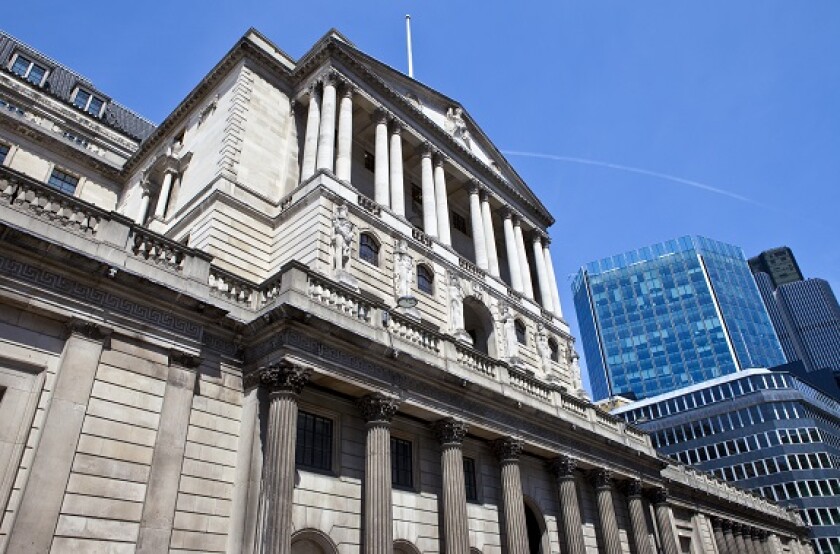Governments, rightly, have stepped up to support small businesses as coronavirus lockdowns threatened the futures of pubs, restaurants, builders, dentists and much more besides. The schemes have often been far from perfect, and the virus will still have done terrible economic damage, but this backing has still proved an essential cushion against the Covid-19 financial blow.
Now, though, comes the tricky question of figuring out who takes the pain.
Many of the government schemes have been structured as guarantees to banks, rather than direct lending, meaning no cash impact at the various finance ministries, yet.
But loans to struggling SMEs, which have seen two months of revenue evaporate, may not be easy to repay even as lockdowns ease, and many small businesses need a full scale restructuring of their debt liabilities to fit them for the post-Covid world.
Securitization is one answer to the question.
The capital markets industry brings up securitization whenever the vexed issues of SME funding arise, because it’s one of the only ways so far invented to plug institutional fixed income investors into bundles of loans which are far too small for the wholesale markets to care about individually.
Better funding for SMEs was one of the planks of the EU’s original Capital Markets Union (CMU) scheme in 2014, with upgrades to securitization regulations supposed to plug this gap. The "Juncker plan" also saw EU guarantees funnelled into risk transfer securitizations through the European Investment Fund, helping banks recycle capital from their SME books into new lending.
Post Covid-19, securitization could once again step up. TheCityUK, an influential finance industry lobby group, flagged the potential for using securitization structures modelled on the UK’s student loan sales as a tool to help the UK deal with a surfeit of bad SME debt.
Now it has appeared again, in the latest version of the CMU proposals.
The report, published last week, said: “Banks are acting hand in hand with the Member States to mitigate the effect of the pandemic on the economy, by extending large scale moratoria on existing credit and new loans… to support borrowers’ liquidity needs."
It continued: “That will deepen the sovereign-bank link… Securitization of such government-guaranteed loans and their distribution beyond the banking system will help reduce such linkages.”
Securitization markets could use a chance to ride to the rescue — and the tone from the new CMU plan is encouraging, with a capital markets wishlist of regulations to fix included in the document.
But technical capital markets solutions can only take the problem so far. Securitization can turn a motley portfolio of potential SME defaults into a big slice of investment grade debt, which can be sold on to insurance companies and pension funds. But it can only create the good tranche by creating a bad tranche too — leaving a big slice of debt where all the portfolio losses are concentrated.
It can only remove those losses from the government balance sheets by selling the riskiest slice to specialised, high risk-appetite funds with a keen nose for a bargain and a lot of firepower.
The CMU report suggests the four largest eurozone economies will guarantee up to €1.3tr fo debt by the end of 2020, while the UK report estimates perhaps €100bn of bad debt by 2021.
Every alternative asset manager out there is shaking the tin for new distressed debt and special opportunities funds at the moment, but even so, the sheer quantity of troubled SME debt likely to emerge will easily swamp all these available funds.
More vexed still is the question of price and incentives. Private sector buyers looking at bundles of troubled loans usually want to use their own discretion in servicing and working out the loans, and will have medium term time horizons and high return targets.
Governments facing millions of struggling small business owners — voters and pillars of the community all — cannot readily agree to let global distressed debt buyers have free rein in working out these books, or allow private equity firms to walk away with 20%-plus returns from partially guaranteed loans.
But a government balance sheet can have a 30 year time horizon, an explicitly political servicing plan, and no need to make a commercial return. Put simply, the riskiest part of an SME rescue securitization will always be worth more to the government than its potential buyer base.
The exception is when the government balance sheet is running low on capacity, as the CMU report suggests. Eurozone periphery economies, which were only part-way through their NPL piles accumulated in the sovereign crisis before the virus hit, could quickly run out of ammo to deal with the new round of Covid-19 SME problems, even with a helping hand from the European Central Bank.
But this, too, is highly political, just as it was in the sovereign and financial crises. Germany hived off huge piles of toxic assets from 2008 into several bad banks, and will carry on running them off in the decades ahead, funded with the help of a triple-A rated sovereign guarantee. Meanwhile, peripheral European banks have been forced into NPL firesales by ECB provisioning rules, and US private equity and hedge funds have made out like bandits.
Securitization for these troubled SME books can be a useful packaging vehicle, and help to raise funding against them. But it cannot deal with the ultimately political problems associated with the government schemes. Securitization is a useful technique for allocating losses and structuring cashflows — but it can’t make losses disappear.

